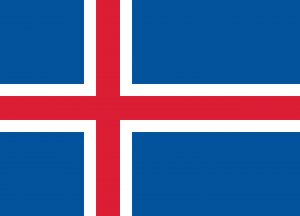Language/Icelandic/Grammar/Nouns
Modern Icelandic is still a heavily inflected language with four cases: nominative, accusative, dative, and genitive.
Icelandic nouns can have one of three grammatical genders: masculine, feminine or neuter. There are two main declension paradigms for each gender: strong (i.e. root ending in consonant) and weak (root ending in a vowel) nouns, and these are further divided into subclasses of nouns, based primarily on the genitive singular and nominative plural endings of a particular noun.
The gender of a noun can often be surmised by looking at the ending of the word:
- masculine nouns often end in -, -i, -ll or -nn
- feminine nouns often end in -a, -ing or -un
- neuter nouns usually have no ending or have a final accented vowel
Icelandic nouns also inflect for number (singular and plural) and definitiveness (definite and indefinite).
Take some time to dive into these other pages after completing this lesson: Negation, Conditional Mood & Articles.
Sources[edit | edit source]
Book: Learn to Speak Icelandic: without even trying, Stephen Hernandez
Videos[edit | edit source]
Icelandic Grammar: Subject Pronouns and Að Vera - YouTube[edit | edit source]
Other Lessons[edit | edit source]
- Possession
- Plurals
- Prepostitions
- Adjectives
- Prepositions
- Icelandic Articles
- Verbs
- Articles
- Negation
- Definite Article
- Adverbs
- Pronouns
- Conditional Mood
- Questions

